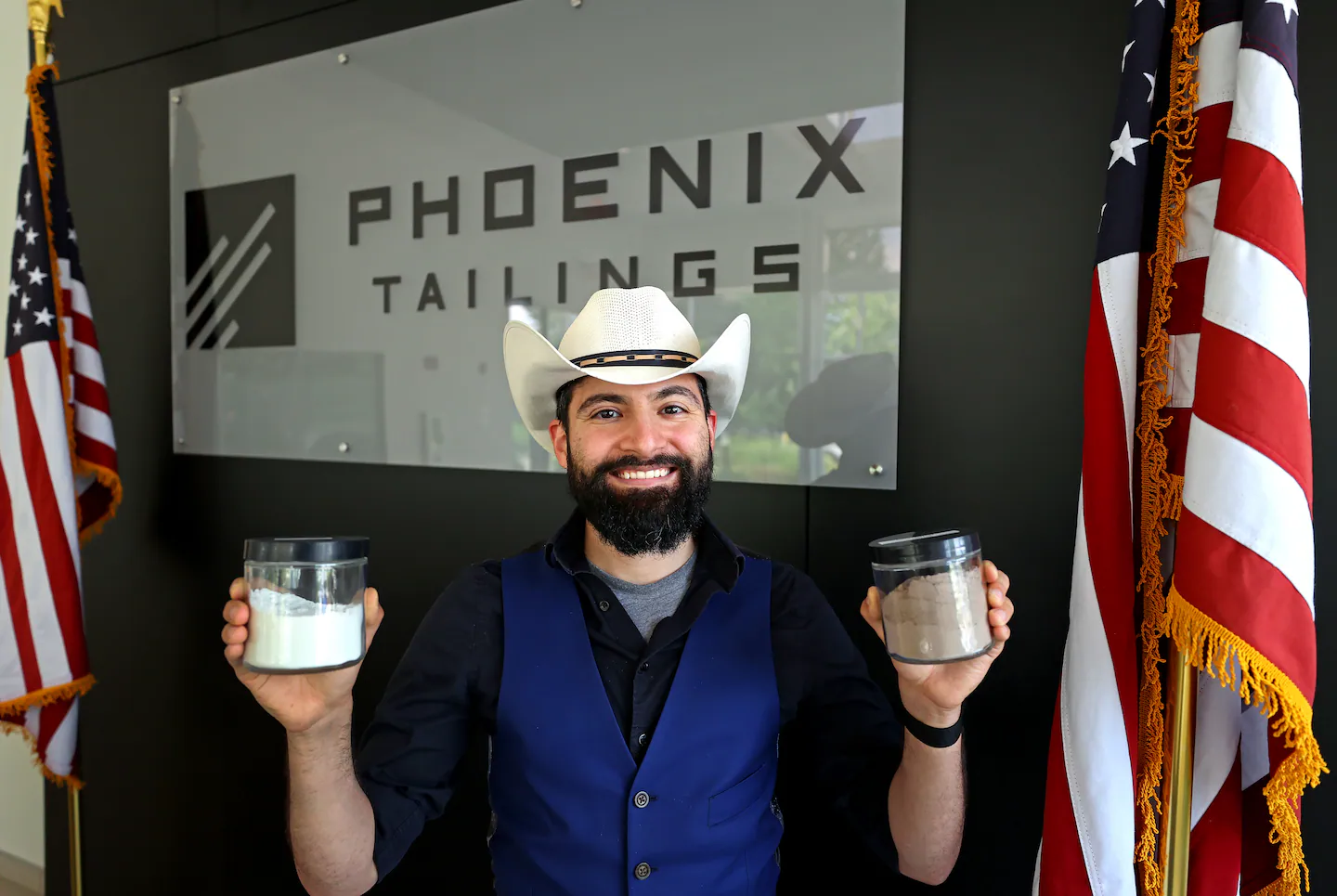Copyright The Boston Globe

As China tightens its grip on the market for rare earths vital to high-tech products, Woburn-based Phoenix Tailings said it’s prepared to ensure that US defense contractors won’t run out. Phoenix Tailings recently fired up production at a new factory in Exeter, N.H. which is already producing rare earths at a rate of 200 tons per year, and could be boosted to an output of 1,000 tons. Even at its initial run rate, “we’ll do a little less than half of the US military demand‚” said chief executive Nick Myers, who estimates that defense industries need about 500 tons per year. That means the company might be able to provide defense contractors with all they need to build critical components such as radars and jet engines. Advertisement But for now, Phoenix is selling its output to the auto industry, and Myers declined to say whether the company is in discussions with the Department of Defense. Rare earths are 17 metals with gnarly names like neodymium, and extraordinary chemical properties. Magnets blended with rare earths are vital for the drive motors of electric cars. They’re also essential for batteries, chemical catalysts, ceramics and other uses. Despite its importance, the defense industry accounts for only one-tenth of one percent of US rare earth consumption, according to a report from the US Government Accountability Office. So Phoenix Tailings’ output is a drop in the bucket. It’ll take far more production to break the Chinese rare earths stranglehold. There’s new urgency about building a domestic rare earths industry. China, which produces 90 percent of the world’s supply, has threatened to sharply limit sales to the US in response to high tariffs on Chinese imports imposed by the Trump administration. If China follows through, it could cripple a number of industries. Advertisement “The challenge with China has been a very existential one for many people in the United States,” said Myers. The Us was once a major producer of rare earths but largely abandoned the business in the 1980s because producing the metals also produced large amounts of toxic waste. Phoenix Tailings says it’s developed a water-based refining system that produces virtually no waste. The company presently refines metals using ore from domestic rare earth mining, and recycled materials from old magnets. But long-term the company plans to use “tailings,” the leftover rubble from traditional mines. Tailings are cheap and plentiful, and according to Myers, they’re full of rare earths. If the Exeter plant proves its worth, Phoenix plans to build larger refineries close to mines all over the US, turning them into major new sources of rare earths. Hiawatha Bray can be reached at hiawatha.bray@globe.com. Follow him @GlobeTechLab.



